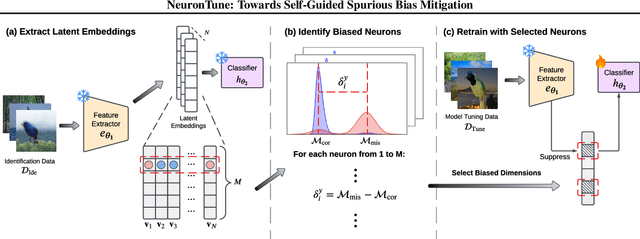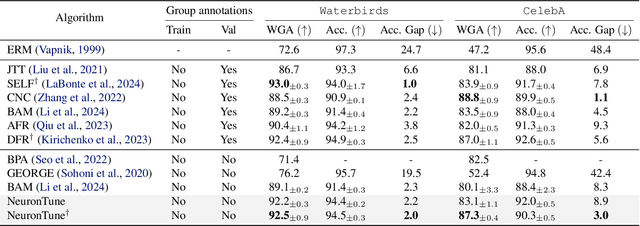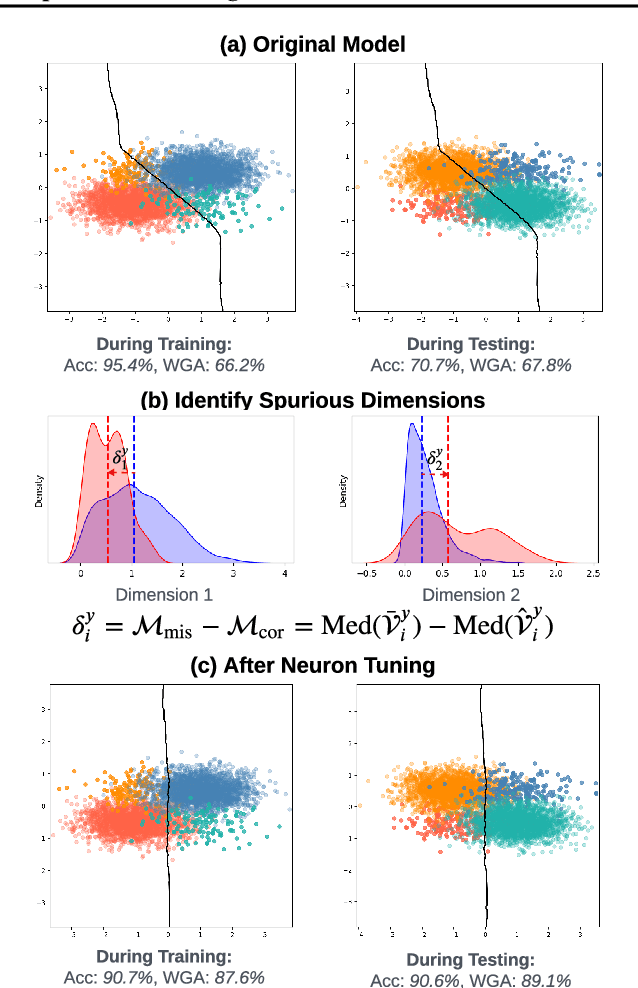NeuronTune: Towards Self-Guided Spurious Bias Mitigation
Paper and Code
May 29, 2025



Deep neural networks often develop spurious bias, reliance on correlations between non-essential features and classes for predictions. For example, a model may identify objects based on frequently co-occurring backgrounds rather than intrinsic features, resulting in degraded performance on data lacking these correlations. Existing mitigation approaches typically depend on external annotations of spurious correlations, which may be difficult to obtain and are not relevant to the spurious bias in a model. In this paper, we take a step towards self-guided mitigation of spurious bias by proposing NeuronTune, a post hoc method that directly intervenes in a model's internal decision process. Our method probes in a model's latent embedding space to identify and regulate neurons that lead to spurious prediction behaviors. We theoretically justify our approach and show that it brings the model closer to an unbiased one. Unlike previous methods, NeuronTune operates without requiring spurious correlation annotations, making it a practical and effective tool for improving model robustness. Experiments across different architectures and data modalities demonstrate that our method significantly mitigates spurious bias in a self-guided way.
 Add to Chrome
Add to Chrome Add to Firefox
Add to Firefox Add to Edge
Add to Edge